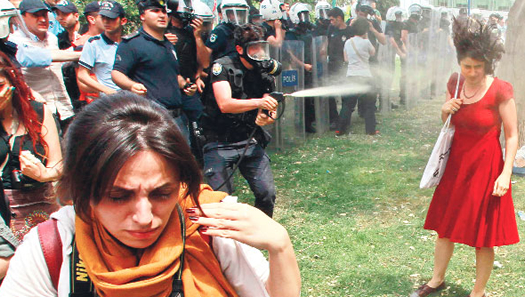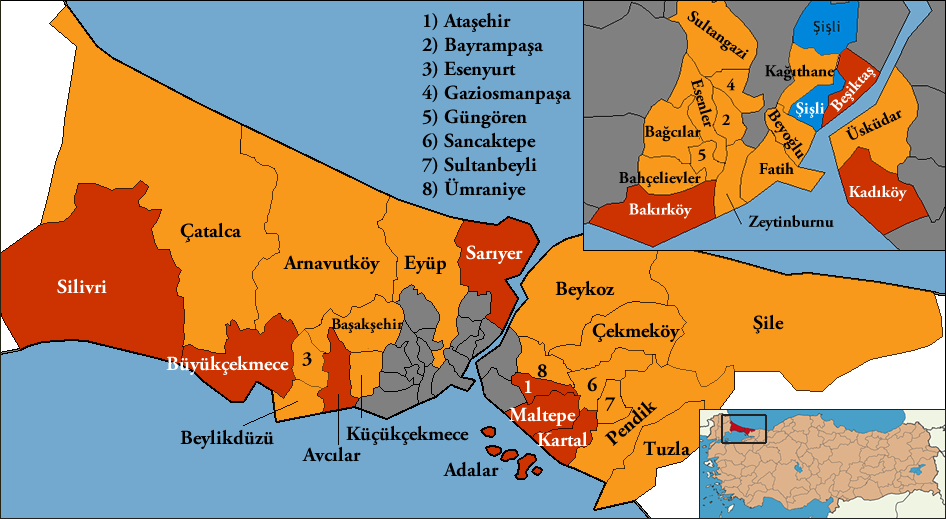This page is no longer being updated
We’ve updated our site templates over the years and the information it contains may not appear as originally intended. Sorry about that. Do follow the links for coverage of the 2019 local elections.
10,002,256
Mayor before the election
Kadir Topbaş (AKP)
- A clearer picture in Istanbul
8 December 2013 - Sarıgül’s fight
7 January 2013 - Playing politics with council boundaries
18 October 2012
Province assembly, 2009
| AK Party |
158/276
|
| CHP |
115/276
|
| MHP |
1/276
|
| SP |
1/276
|
Predicted 2014 result
Too close to call
İstanbul
The structure of Turkish local government was radically changed ahead of this election.
Before 2014, a municipality’s borders did not necessarily overlap with the borders of its host province. Often the biggest municipality covered only the province’s central district (coloured teal on the map), which tended to correspond to the main urban area.
For the 2014 election, municipal borders in Turkey’s 30 largest provinces — known as büyükşehir — were enlarged to overlap precisely with the province borders.
This added all other districts in the province (coloured grey on the map) and new demographic to the electoral roll. People living in smaller towns, villages and rural areas found themselves voting for the main city’s mayor — in addition to their existing local mayor — for the first time.
2014 mayoral result
| Party | Candidate | Votes | % | |
|---|---|---|---|---|
| AK Party | Kadir Topbaş (incumbent) [ELECTED] | 4,101,906 | 47.95 | |
| CHP | Mustafa Sarıgül | 3,428,454 | 40.08 | |
| MHP | Rasim Acar | 339,785 | 3.97 | |
| HDP | Sırrı Sürreya Önder - Pınar Aydınlar (joint ticket) | 414,290 | 4.84 | |
| SP | Selman Esmerer | 122,950 | 1.44 | |
| DP | Hüseyin Güler | 5,604 | 0.07 | |
Other parties | 555,115 | 6.49 | ||
Invalid votes | 387,512 | |||
Turnout | 8,941,326 | 89.39 | ||
Registered voters | 10,002,256 |
The Gezi Park protests in the summer of 2013 were triggered by a policy spearheaded by Istanbul’s two two-term incumbent mayor, Kadir Topbaş.
It was his plans to rebuild Taksim Square, much of which found cross-party support in the city assembly, that triggered an occupation of the park; it was the police’s brutal treatment of those occupiers that ballooned the movement into a nationwide protest.
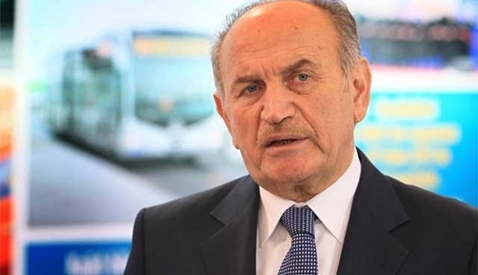
Mayors in Turkey don’t have control over the police (a power held by the provincial governor appointed from Ankara), so Mr Topbaş bore little responsibility for the brutality of that crackdown. He was also vastly overshadowed in the aftermath of the unrest by his party’s leader, Recep Tayyip Erdoğan, who became the principal target of the demonstrations.
Mr Topbaş was able to portray himself as a more moderate figure, saying he understood the protestors had some grievances and promising to pay more attention to Istanbulites’ concerns in future.
There were persistent rumours that he would be asked to step aside for the EU Affairs minister, Egemen Bağış, whose chief qualification for the post appeared to be that he had served the three consecutive terms he is allowed as a member of parliament.
But it was clear by the end of November that Mr Topbaş would be renominated – and in December, he was.
Republican People’s Party (CHP)
Turkey’s main opposition gave the AK Party the closest fight of its short history here in 2009 when Kemal Kılıçdaroğlu came within a few hundred thousand votes of toppling Mr Topbaş. If it is to mount another serious challenge to capture Turkey’s biggest city in 2013, the CHP will need a candidate who can persuade a great deal many people who have never voted for a left-wing party in their lives.
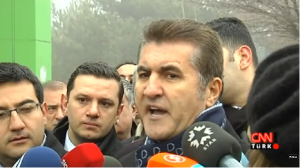
Such an impossible candidate does perhaps exist: his name is Mustafa Sarıgül and he has thrice been elected mayor of Istanbul’s posh Şişli district, each time with more than half the vote. He has made a name for himself not just across Istanbul but across Turkey, with many identifying him as the country’s best-known politician of the left.
There were two major obstacles to one of Turkey’s most recognisable left wing politicians becoming a CHP candidate anywhere. The first was former leader Deniz Baykal, who he challenged for the party leadership in 2005, lost, and was subsequently expelled for the treason. Mr Baykal no longer commands influence in the party.
The second was that Mr Sarıgül had not reapplied for CHP membership and was extraordinarily coy about rejoining. He finally did so in November 2013 and promptly became the frontrunner for his party’s nomination.
There are challengers for the role, however. Celal Doğan, a former three-term mayor in the southern town of Gaziantep has formally applied and so has Gürsel Tekin, CHP’s deputy leader, who was prominent on the ground during the Gezi Park unrest.
Nationalist Movement Party (MHP)
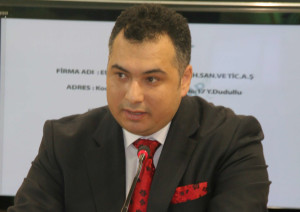
Of the four parties represented in parliament, none is quieter in Istanbul than the Nationalist Action Party (MHP). They have been quite vocal about other parts of the country, having announced candidates for major cities including Ankara as early as September. But Istanbul is not a city where the MHP is strong: it won barely 5 percent of the vote here at the last election, partly because the Topbaş-Kılıçdaroğlu battle elbowed out any other suitors.
In December, the nationalists announced they have gone for town planner Rasim Acar, aged just 37. It appeared to be the result of a decision not to rival the two larger parties with a “star quality” candidate. Instead, Mr Acar has a degree in town planning and spent three years working in the transport department of the very council he now wants to lead. He has never been a member of parliament nor elected to any council.
BDP/HDP alliance
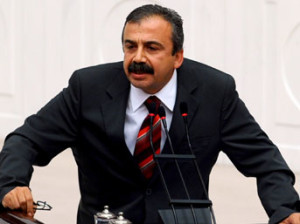
The Peace and Democracy Party (BDP) will be contesting the 2014 local elections in alliance with the Democratic Party of Peoples (HDP). In Istanbul, candidates will run on the HDP ticket.
Despite talk of supporting the (still undeclared) CHP candidate, the HDP announced in early December that their Istanbul member of parliament Sırrı Sürreya Önder would be the candidate. That candidacy, while difficult to triumph, could split the Kurdish and left vote and play to a Kadir Topbaş victory.
Other 2014 Büyükşehir elections
Adana – Ankara – Antalya – Aydın – Balıkesir – Bursa – Denizli – Diyarbakır – Erzurum – Eskişehir – Gaziantep – Hatay – İstanbul – İzmir – Kahramanmaraş – Kayseri – Kocaeli – Konya – Malatya – Manisa – Mardin – Mersin – Muğla – Ordu – Sakarya – Samsun – Şanlıurfa – Tekirdağ – Trabzon – Van





